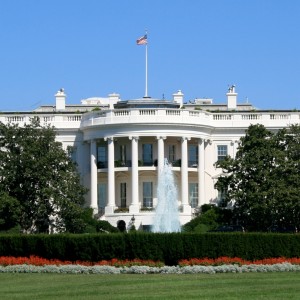I’ve called on Gov. Sununu to use his leverage to press the White House to take an aggressive approach to equipping our health professionals for the battle ahead.
While President Trump issued an executive order invoking the Defense Production Act (DPA) to battle the pandemic, his advisers have resisted making aggressive use of the law to mobilize private industry, according to a recent New York Times article.
Right now in New Hampshire, we don’t have enough personal protective equipment (PPE), for our front-line health professionals. For example, in Nashua, my good friend Rep. Latha Mangipudi is fielding calls from doctors about the shortage of protective equipment and concerns that front-line responders will spread infections.
The New York Post ran a front-page picture of doctors wearing repurposed garbage bags for lack of medical-grade protective gowns. Every day brings horror stories from health professionals unable to get the equipment they need.
Meanwhile, President Trump expresses doubts about the need for more ventilators.
Masks, gowns, gloves and face shields protect not only front-line medical providers from contracting COVID-19 (so that we can continue giving needed medical care), but they also protect our patients.
PPE is fundamental to preventing the spread of disease. It’s been demonstrated to be a key protective factor in slowing the spread of COVID-19 in countries were the pandemic hit first.
Ventilators are obviously a critical component of treating COVID-19.
Volunteers all over New Hampshire have taken to their sewing machines to sew face masks. While donations and hand-sewn solutions are appreciated, the concern is that viruses can easily make their way through expired material or hand-sewn masks.
This could cause harm by creating a false sense of security, and healthcare workers could unknowingly add to the spread of COVID-19. New Hampshire and the nation urgently need Centers for Disease Control and Prevention compliant protective gear.
What we need is an emergency level federally coordinated response to increase domestic production of medical grade personal protective gear and other equipment.
President Trump has the power to make this happen. The DPA would regulate fair distribution of PPE and check price-gouging and hoarding.
But, as of now, the president hasn’t used the full power of the DPA. Instead he has asked private industry to “volunteer” their services to produce PPE.
Volunteer response, however brave and well intentioned, will not be enough to meet the need. It will not be enough to protect front-line healthcare workers. Nothing short of a complete mobilization of the entire U.S. manufacturing sector to meet the threat we face is sufficient.
There is some action in Washington. My former colleague, Sen. Chris Murphy, together with Hawaii’s Sen. Brian Schatz, just introduced the Medical Supply Chain Emergency Act.
According to Sen. Murphy’s website, “The Medical Supply Chain Emergency Act would require the president to use authorities under the Defense Production Act of 1950 to require emergency production of medical equipment to address the COVID-19 outbreak.”
Specifically, the bill would force President Trump to identify “private sector capacity” to help produce no less than five million N95 respirators; 200,000 medical ventilators; 20 million face shields; 500 million pairs of gloves; and 20 million surgical gowns in addition to other medical equipment deemed necessary.
If implemented, this act would allow federal management of the supply chain and could direct the distribution of resources efficiently and equitably to the hospitals and front-line healthcare workers who need them now.
Gov. Sununu touts his good relations with the White House. He should use whatever leverage he can muster and pressure the White House to respond immediately to the crisis faced by our courageous health professionals.
There is no time to waste. Cases of COVID-19 and deaths are rising — and there are deaf ears in D.C.



